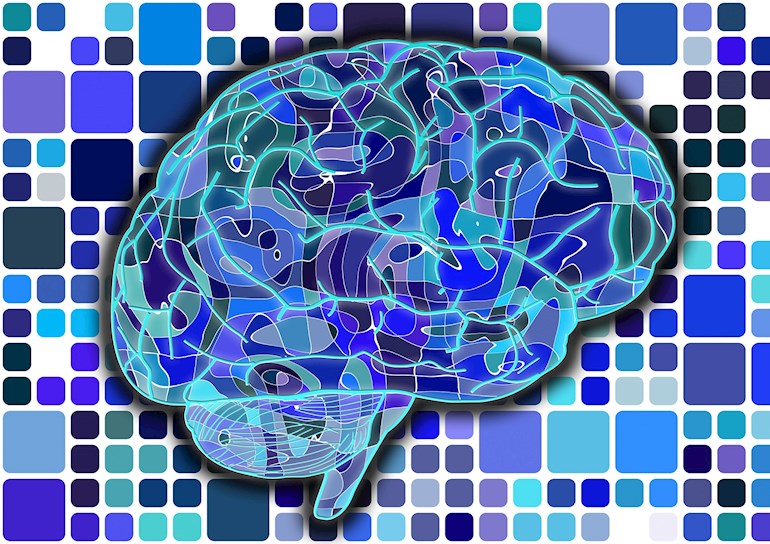Hi Everyone! 
It is difficult for people living with Fibro and/or M.E as the symptoms for the two conditions can be synonymous and therefore appear to be the same condition.
However research seems to have found different findings for Fibromalgia that to date have not been found in ME.
Fibro-my-algia
Fibro relates to the Fibrosis Tissue it affects, my means muscle algia means pain, ache etc.
My-algic Encephalo-myel-itis
My means Muscle algic pain, ache etc Encephalo relating to the Central Nervous System(CNS) /Brain myel Spinal Cord itis Inflammation
'Fibromyalgia has been found to have the following key findings via the former charity FibroAction who merged with Fibromyalgia Association to form Fibromyalgia Action UK (FMAUK)
• Increased levels of the pain-transmitting chemicals substance P and nerve growth factor in the spine
• An extreme response to pain in the brain with a functional MRI scan, the parts of the brain that deal with pain are seen to light up from a significantly smaller pain stimuli in people with Fibro compared to healthy people
• Disrupted stage 4 (deep) sleep, meaning that sleep is non-restorative, even if the person with Fibro sleeps through the night16. Two studies have shown that artificially disrupting stage 4 sleep in a similar fashion for 3 or more nights in a row will lead to Fibro-like symptoms developing in healthy people
• Reduced availability of opioid receptors, explaining why opioid medications are less effective in people with Fibro
• A subset of people with Fibro have been shown to have positional cervical cord compression, meaning that the spinal cord in their neck is compressed when they lean their head backwards. This finding is still being studied, but this positional cervical cord compression could be a reason for the autonomic nervous system to be disrupted. People with Fibro who have this particular abnormality may benefit from a specific physical rehabilitation program to stabilise the neck, but it is still relatively early days in this area of research
• Accelerated brain grey matter loss
• Abnormalities in the dopamine systems of the brain, including a reduced dopamine response to pain. As dopamine is thought to act as the brain's "filter", these findings could help explain the autonomic dysfunction and central sensitisation of Fibro. A few medications that boost dopamine in the brain are used as treatments for Fibro (pramipexole/Mirapexin and nefopam/Acupan) and some people do very well with these.
• Changes to the Hippocampus, a part of the brain involved in many processes, including pain perception and memory formation
• Dysregulation of the HPA (hypothalamic-pituitary-adrenal) axis, which is a complex set of interactions between the hypothalamus, the pituitary gland, and the adrenal gland. The HPA axis controls reactions to stress and regulates various body processes including digestion, the immune system, mood, and energy usage
• Dysfunction of the Autonomic Nervous System
• Altered blood flow in the brain'
(Information found by Lindsey Middlemiss 2009, Founder of FibroAction Trustee)
None of the these I believe to date have been found in M.E as far as I am aware however ME does need more research to confirm this.
We also have known medication which helps in the treatment of Fibro. For instance, the wording in bold above discusses Dopamine levels and you can take Parkinson medication which help with Dopamine levels that can also be used in the treatment of Fibro, please passage below & link;
'Dopamine agonists mimic the action of dopamine in the brain, fooling the body into thinking that it has more dopamine available than it actually has. Dopamine agonists were originally used for the treatment of Parkinsons Disease, but are also recognised as being a treatment for Restless Leg Syndrome. Their use in the treatment of Fibro is still being studied, but they have proved promising in trials so far. Pramipexole (Mirapexin) is recommended for by the EULAR Guidelines for the Management of Fibro because it reduces pain, but it can be problematic for some people because of side effects'
(Again Thank You to Lindsey Middlemiss 2009 founder of the former charity FibroAction and Trustee)
Currently I believe there are no key findings that are available for Myalgic Encephalomyelitis, cure or any universal ME treatments.
I think the short answer is although having similiar symptoms as both considered to be Neurological (ME classified by WHO 1969) in my personal opinion Fibro & M.E affect the brain and CNS in different ways physiologically.
Please note this is my own opinion and I have only surmised this from what I have read but obviously research continues............
I hope this information helps
Emma 
For more information about Myalgic Encephalomyelitis(M.E) please see below;
& Fibromyalgia click the link below;
